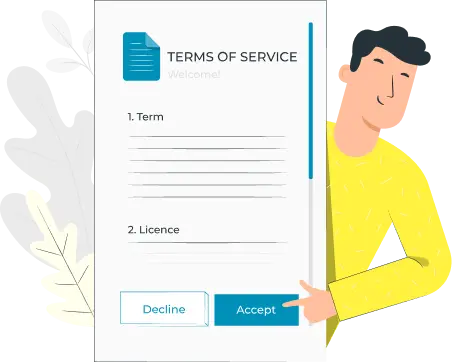Employee retention strategy refers to implementations an organization adopts to keep its employees from leaving. It plays a critical role in organizational success, directly impacting productivity, company culture, and overall business performance. Typically, a retention strategy encompasses various policies, practices, and initiatives designed to create a positive work environment and encourage long-term employment. A well-crafted retention strategy can foster employee engagement, enhance motivation and reduce turnover rates.
Retained employees typically possess rich experience and value within the company, leading to higher productivity and requiring less supervision. These skilled employees ensure continuity and maintain high levels of productivity, contributing significantly to the organization's success.
Long-tenured employees have valuable knowledge and expertise at their disposal, which can be difficult to replace. Retaining these employees preserves such critical knowledge within the organization, ensuring that important insights and skills remain available for ongoing projects and mentoring new staff.
Frequent turnovers often lead to higher expenses, such as recruitment, training and onboarding costs. Retaining employees reduces these expenses, helping the organization maintain budget efficiency and allocate resources more effectively.
Having high turnover in an organization signifies uncertainties and decreased motivation among employees. Maintaining a stable workforce fosters a positive work environment that boosts employee morale, promoting a sense of security and loyalty among staff.
When an employee is offered a competitive salary or a comprehensive benefits package that matches or exceeds those of competitors, it entices them to stay loyal to the company, retaining them in the process. This includes health insurance, pension plans, bonuses, and other perks, which collectively enhance employee satisfaction and retention.
Presenting employees with opportunities for career development and future growth gives them the ability to remain engaged and motivated within the organization. Implementing measures such as training programs, mentorship, promotions, and educational support can retain talent in the long run. These demonstrate a company's commitment to employee growth and development, fostering loyalty and satisfaction.
Involve employees in meaningful work, participation in decision-making, and engagement in company activities. Provide a comfortable space where regular feedback is encouraged and contributions are recognized. This can facilitate a stronger sense of purpose and belonging among employees, enhancing their commitment and loyalty to the organization in the process.
Cultivating an environment where employees are regularly acknowledged and rewarded for their hard work and contributions can bolster morale and motivation in the workplace. This can be done through formal recognition programs, bonuses, and public acknowledgement. Such practices demonstrate appreciation and encourage continued excellence among employees.
Consider having stay interviews to better understand why employees choose to stay with the company and what can cause them to potentially leave the organization. These interviews provide valuable feedback that can be used to improve retention strategies.
To retain employees in the long run, offer flexible working arrangements that help them balance their personal and professional lives. Options such as remote work and flexible hours can reduce stress and increase job satisfaction, making employees more likely to stay with the organization.
Managers and supervisors play a prominent role in supporting and motivating teams effectively. By investing in leadership development programs, organizations can ensure that managers are equipped with the skills necessary for effective employee retention. With strong leaders, it helps to cultivate a positive work environment in the long run.
Disclaimer: This article and all information in it is provided for general informational purposes only. It does not, and is not intended to, constitute legal or tax advice. You should consult with a qualified legal or tax professional for advice regarding any legal or tax matter and prior to acting (or refraining from acting) on the basis of any information provided on this website.
Choose Glints TalentHub as your partner in Southeast Asia.
Building your Team in
Southeast Asia with Glints' EOR Service

Rapid
Team Setup
Launch Southeast Asian operations in a week for a seamless start

Full Suite of HR Offerings
Launch Southeast Asian operations in a week for a seamless start

Guaranteed 100% Compliance
Ensure total HR and legal compliance with expert local guidance

Dedicated & Immediate Support
Get quick, dedicated HR support within 24 hours